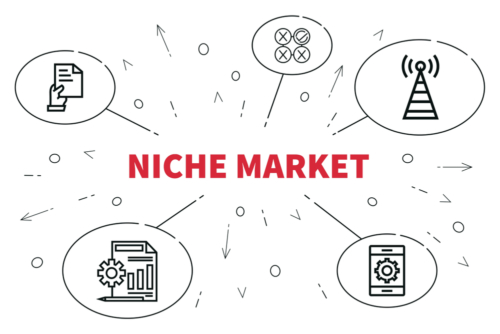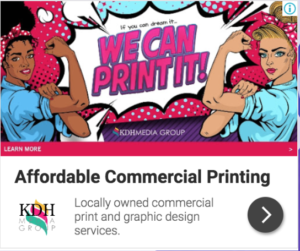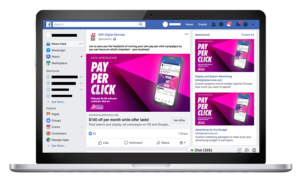Pay Per Click
In today’s world of digital marketing, Pay Per Click (PPC) advertising is one of the most sought after marketing strategies. The sad truth is that many ad campaigns fail due to the lack of knowledge and experience. You don’t necessarily spend thousands of money to find what works, you just have to identify what doesn’t work. The following article uncovers some of the leading causes (no specific order) why many Pay Per Click Campaigns Fail.Not Understanding Your Audience
No matter if you’re advertising household products or anything else, your audience will change depending on the product. Understanding who your audience is can help you tailor your content and target the right people. Adwords beginners tend to commit the common mistake of wanting to reach the highest number of people possible. Although you might be able to get more people to learn about your brand, it isn’t always the smartest move. Ad campaigns can be customized to show to a relevant audience, raising your chances of landing better conversion rates.Not Introducing Your New Products or Services Properly
 Introducing a fairly new product to an uninformed audience could be tough at first. It’s difficult to get results from an audience who might not even be interested in your products or services, to begin with. So, how can you work around this? Although it’s easier said than done, the best way to approach ad campaigns is by targeting the audience who already follows you or has shown previous interest. If you’re new to the online scene, try putting some time and effort into a branding campaign before starting a Pay Per Click campaign. It’ll help you drive up brand awareness and bring in better results for whenever you do decide to move forward with an ad campaign.
Introducing a fairly new product to an uninformed audience could be tough at first. It’s difficult to get results from an audience who might not even be interested in your products or services, to begin with. So, how can you work around this? Although it’s easier said than done, the best way to approach ad campaigns is by targeting the audience who already follows you or has shown previous interest. If you’re new to the online scene, try putting some time and effort into a branding campaign before starting a Pay Per Click campaign. It’ll help you drive up brand awareness and bring in better results for whenever you do decide to move forward with an ad campaign.
Using Too Many Keywords
Just because you target more keywords in a PPC Campaign, doesn’t mean you’re going to get better results. In fact, about 88% of the keywords used in a PPC Campaign end up performing badly. This means that cutting out those non-performing keywords can help you save some cash and invest it in your performing categories. Customer surveys are a great way of finding out which keywords to invest in. It’ll give you an idea for new key terms you can test out in the future.Forgetting to Track Your Ad Campaign’s Results
- Are your landing pages helping you convert?
- What areas or cities are the ads most popular in?
- What times are the most popular to publish your ads?
- Which targeted keywords should you leave out?
- Who is clicking on your advertisements (Includes gender, age, etc.)?
Bidding Incorrectly
Believe it or not, bidding incorrectly can ruin your chances of being highlighted in targeted search terms. Remember that the highest ad bids aren’t always taken into consideration – the same goes for low bids. If you bid too low, a competitor who has done their research will outshine you and earn a spot in the ad spaces. Now, if you bid too high, you’ll end up reaching your ad spend a lot faster, cutting down on the number of people you can reach.Neglecting Your Campaign
 Many Pay Per Click Campaigns fail because owners or administrators are spending too little time on managing their campaign. Instead of checking in on your campaign once a month, try updating it once or twice a week. You’ll be able to leave out underperforming keywords and optimize your campaign as it goes.
Many Pay Per Click Campaigns fail because owners or administrators are spending too little time on managing their campaign. Instead of checking in on your campaign once a month, try updating it once or twice a week. You’ll be able to leave out underperforming keywords and optimize your campaign as it goes.
Creating Low-Quality or Irrelevant Ads
Some of your main efforts should be focused around creating quality content and landing pages for your ads. You’ll have low results if your landing pages are poorly done or look outdated. Don’t worry if you have to redesign or hire someone to do the work for you, you can always pause your campaign and resume it after the problem is fixed. It’s better for you to earn money from a well-designed campaign than to be losing money because of low-quality efforts.Focusing On the Wrong Indicators
Although keeping your Cost Per Click (CPL) low is favorable, it’s not always a clear sign of success. Your main focus should be profiting from Pay Per Click ad campaigns in the long run. Over time, you’ll learn what keywords are best for your campaign and what approaches work the best.Final Thoughts
These are the most common reasons why Pay Per Click Campaigns fail to succeed. Fixing these simple errors can help any business turn their PPC Campaigns around and save the company thousands of dollars. It’ll also help you reap the benefits of Pay Per Click Campaigns the right way. For more information on Pay Per Click Ad Campaigns, contact your KDH Digital Services representative. We’ll fill you in on the strategies you need to take your campaign to the next level.
0

 One downside to Pay Per Click is the number of competitors that may be trying to earn a spotlight for like key terms. Although the competition may not be extremely large, it’s always a smart move to stay up to date with the latest PPC marketing trends.
One downside to Pay Per Click is the number of competitors that may be trying to earn a spotlight for like key terms. Although the competition may not be extremely large, it’s always a smart move to stay up to date with the latest PPC marketing trends.
 Pay Per Click ad campaigns allow you to target specific niches, which can raise your ROI.
For example, if you’re a local Killeen tire shop owner looking to boost sales, PPC Campaigns allow you to target locals who are looking for tires. This helps prevent you from paying for clicks from someone who wasn’t interested in the first place, saving you money.
Pay Per Click ad campaigns allow you to target specific niches, which can raise your ROI.
For example, if you’re a local Killeen tire shop owner looking to boost sales, PPC Campaigns allow you to target locals who are looking for tires. This helps prevent you from paying for clicks from someone who wasn’t interested in the first place, saving you money.
 Another advantage PPC provides is exposure. Whether your ad targets local or global audiences, it can definitely boost the amount of audience your ad reaches in a short amount of time. Pay Per Click also allows campaign managers to choose what parts of the globe an ad will appear in. This feature makes PPC a great option for local and international entities who are looking to get the most out of internet marketing.
Another advantage PPC provides is exposure. Whether your ad targets local or global audiences, it can definitely boost the amount of audience your ad reaches in a short amount of time. Pay Per Click also allows campaign managers to choose what parts of the globe an ad will appear in. This feature makes PPC a great option for local and international entities who are looking to get the most out of internet marketing.
 Here’s a picture of a KDH Digital Services ad campaign on Facebook:
Here’s a picture of a KDH Digital Services ad campaign on Facebook:
 Once your online advertisement is clicked on, search engines and social media platforms recollect a small fee in return. What usually happens is that search engines and SMPs find the best bidders and showcase them at the top of the ad search results. But be careful, you wouldn’t want to spend more than what you make per click. If done correctly, search engines reward advertisers with relevant and intelligently
Once your online advertisement is clicked on, search engines and social media platforms recollect a small fee in return. What usually happens is that search engines and SMPs find the best bidders and showcase them at the top of the ad search results. But be careful, you wouldn’t want to spend more than what you make per click. If done correctly, search engines reward advertisers with relevant and intelligently